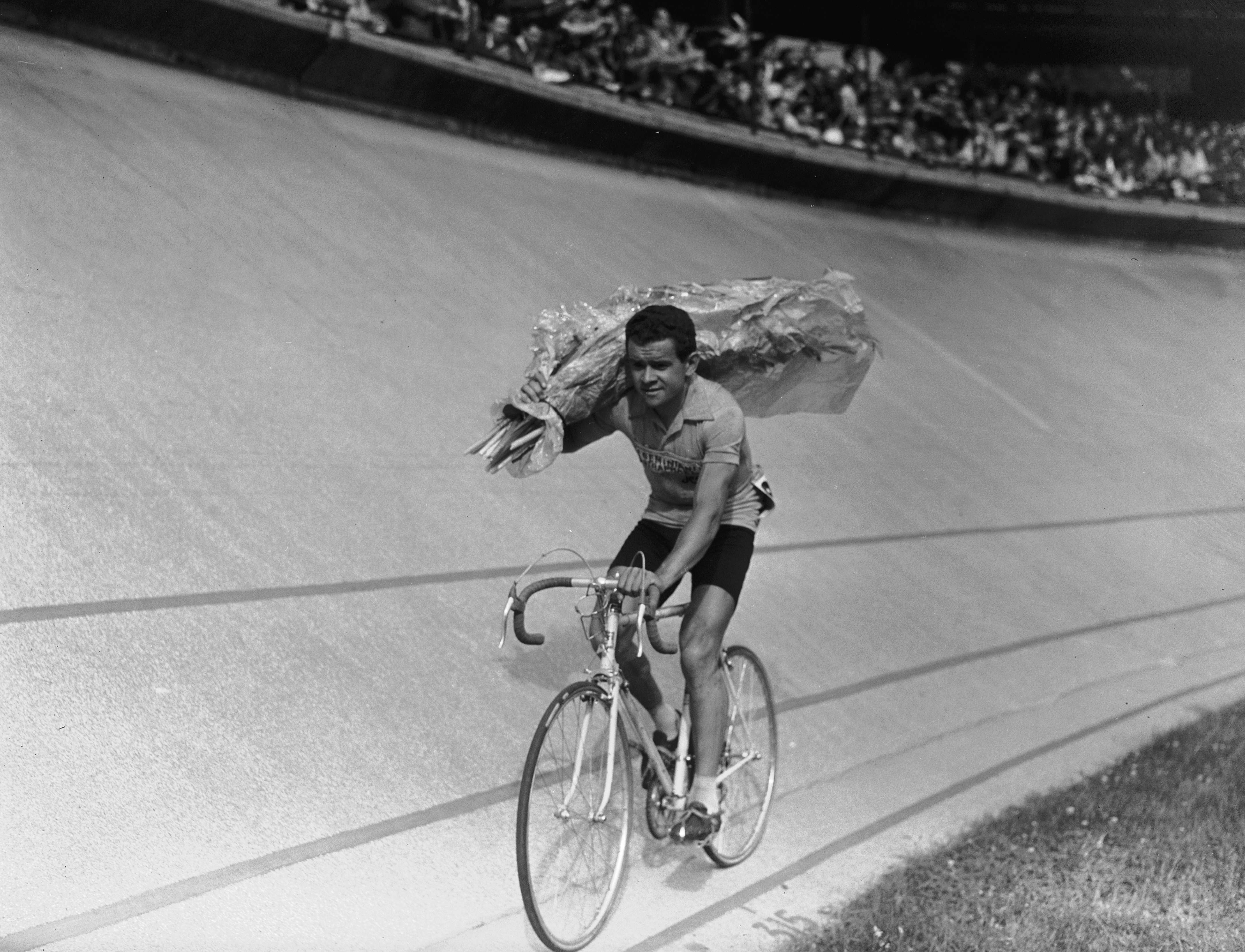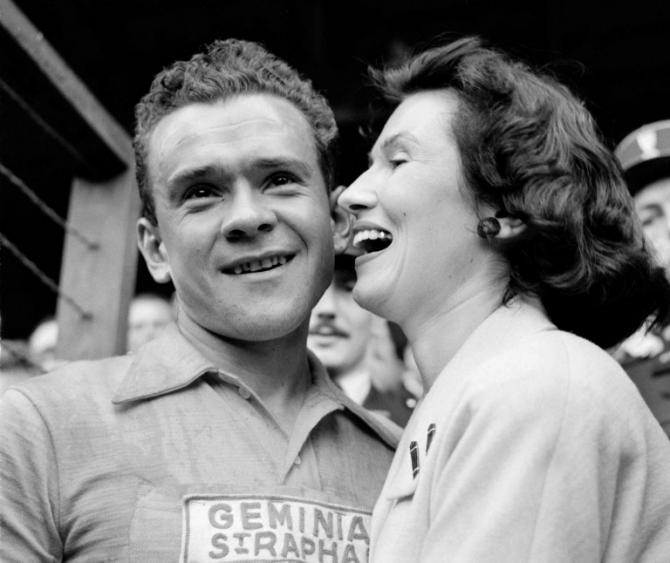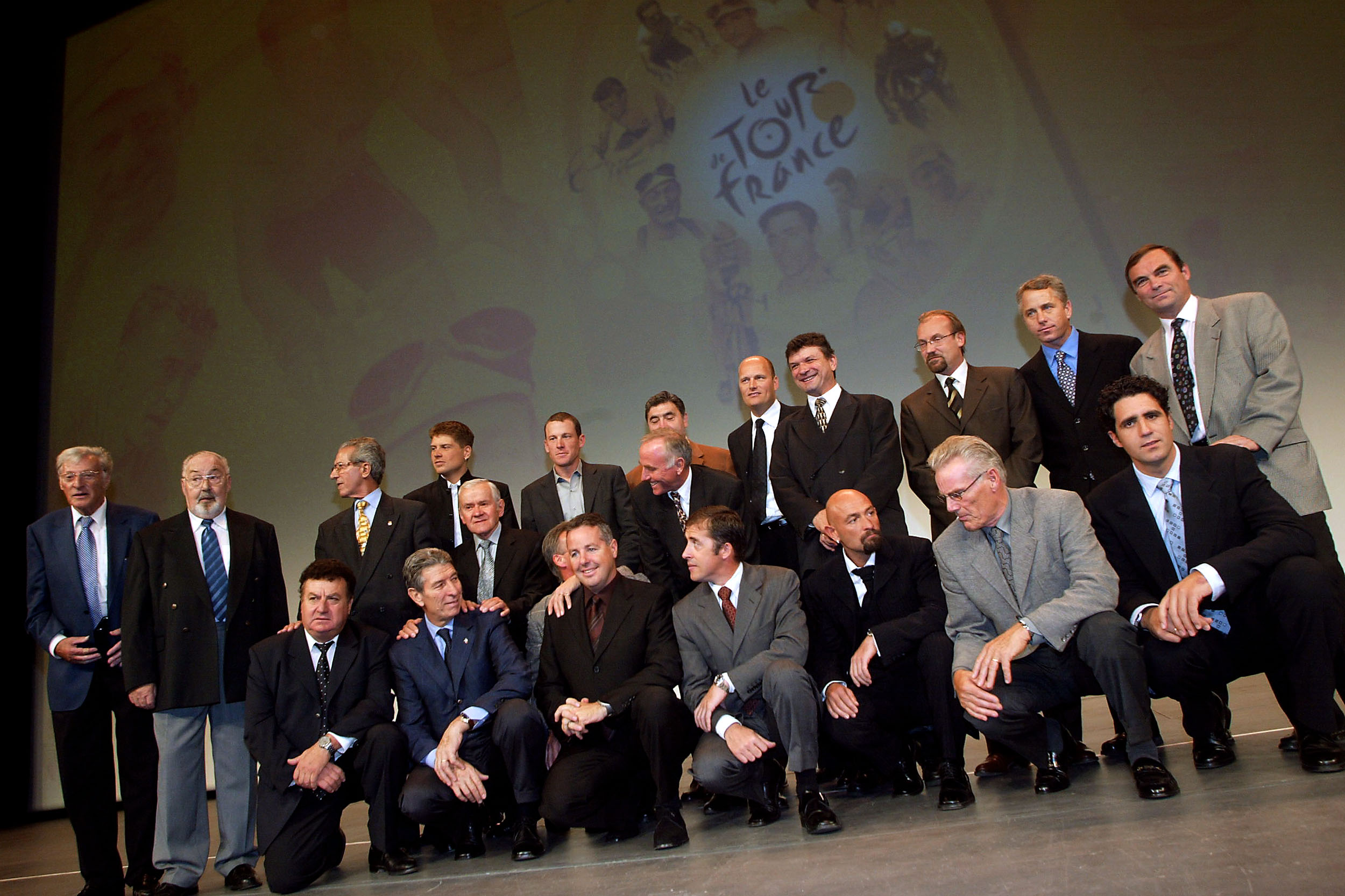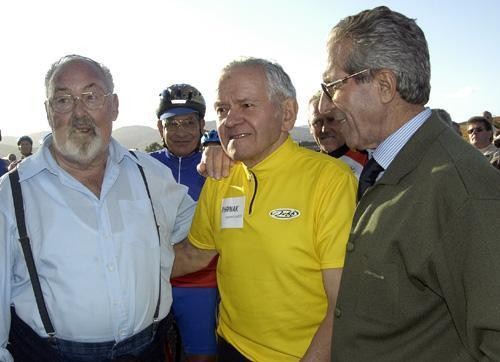1956 Tour de France winner Roger Walkowiak dies aged 89
Frenchman claimed surprise win on regional team




1956 Tour de France winner Roger Walkowiak has died near Vichy at the age of 89, his family announced on Tuesday. The Frenchman was the oldest living Tour champion following the death of Ferdi Kubler in December.
Walkowiak's Tour victory was among the most surprising in the history of the race and the expression 'un Tour à la Walko' would pass into the popular lexicon in France to suggest an unexpected or even undeserved win, though it is usually overlooked that the 1956 Tour was the fastest to that point, at an average speed in excess of 36kph.
At the time the Tour was disputed by national teams, and Walkowiak upset the established hierarchy by winning the race while competing for the lowly Nord-Est Centre regional selection. He first took possession of the yellow jersey after stage 7 to Angers, when he was in a break of 31 riders that finished some 18 minutes clear of the peloton.
Walkowiak conceded the maillot jaune in the middle portion of the race, but regained the overall lead on the tough Alpine leg from Turin to Grenoble in the final week and held it all the way to Paris, beating Gilbert Bauvin of the French national team by 1:25. Future Tour winners Federico Bahamontes and Charly Gaul placed 4th and 13th, respectively.
Although Walkowiak was applauded at the finish in the Parc des Princes, the reaction to his victory elsewhere was muted, with many highlighting the divisions in the French national team and Bauvin's crash in the Pyrenees as explanations for the upset triumph. The journalist Albert Baker d'Isy complained that "it's clear that a winner of the Tour who didn't win a single stage lacks a bit of panache," though Tour director Jacques Goddet was vocal in his praise of the unexpected winner.
The son of a Polish immigrant from Lublin, Walkowiak grew up in Montlucon and started racing after World War II, later explaining that he turned professional in 1951 because he couldn't find a job after training as a metalworker.
In an era when cycling's star system was at its most pronounced, Walkowiak was often deployed a watercarrier, but his Tour victory did not come from nothing. He placed second overall at the 1955 Dauphiné Libéré, where he escaped on a mountain stage to Gap in the company of Louison Bobet, who would go on to win his third Tour de France that same year.
Get The Leadout Newsletter
The latest race content, interviews, features, reviews and expert buying guides, direct to your inbox!
Walkowiak won stages of the Vuelta a España, in 1956 and 1957, but his career will always be recalled for his surprise Tour win. His next best finish was 47th in 1953. He abandoned as defending champion in 1957 and placed 75th in 1958 before retiring after the 1960 season.
In an interview with American journalist James Startt in 2012, Walkowiak was asked to revisit the muted reception to his Tour victory of 1956. "Was it because my father was a Polish immigrant and I had a name not like the others? It was very hard to take. It is hard to explain how that feels. Even before the finish, the press started to be critical but also the team directors. It was like they were saying, 'How could we let this happen?'" Walkowiak said.
"Even during the race, things happened that shouldn't. There was a stage after I had won back the jersey, I crashed and a group of favourites that included Charly Gaul and Federico Bahamontes attacked. When I got back on my bike I was two minutes down and spent the next two hours chasing. And when I caught them what did they do? They took turns attacking! But it also gave me something to chew on."
After retirement, Walkowiak tended a sheep farm before returning to work in a metal factory in the 1970s. "I needed distance from cycling," he told Startt.

Barry Ryan was Head of Features at Cyclingnews. He has covered professional cycling since 2010, reporting from the Tour de France, Giro d’Italia and events from Argentina to Japan. His writing has appeared in The Independent, Procycling and Cycling Plus. He is the author of The Ascent: Sean Kelly, Stephen Roche and the Rise of Irish Cycling’s Golden Generation, published by Gill Books.